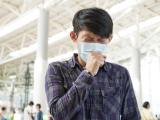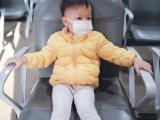Apr 23, 2003 (CIDRAP News) – The World Health Organization (WHO) today warned against unnecessary travel to Toronto, Beijing, and China's Shanxi Province because of the risk of contracting SARS (severe acute respiratory syndrome).
The warning extends the WHO's Apr 2 advisory against nonessential travel to China's Guangdong Province and Hong Kong, the birthplace and epicenter of the SARS epidemic.
In a prepared statement, WHO officials recommended that people planning to go to the three areas "consider postponing all but essential travel." The recommendation will be reassessed in 3 weeks, which is twice the maximum incubation period for SARS, officials said.
The warning follows Chinese officials' recent revelations that Beijing has more than 400 cases of SARS, or more than 10 times the 37 cases reported late last week. WHO officials said the warning is based on the magnitude of the outbreaks in all three areas, evidence of local transmission of the disease to people other than healthcare workers and close contacts, and evidence that the illness is spreading from those areas to other places.
At a news briefing today, David L. Heymann, WHO's executive director of communicable disease programs, cited "a great risk of transmission locally outside of the usual health workers, but still traceable in most instances" in the three areas. He added, "We know that cases have been exported to other countries." Specifically, he said, a SARS case-patient from Toronto recently triggered a cluster of five cases in health workers in another country, which he didn't name. WHO published a transcript of the news briefing on its Web site.
As of yesterday, WHO reported 482 probable SARS cases in Beijing, including 25 deaths, while Shanxi Province had 120 cases with 7 deaths. Canada, the Western country most affected by SARS, had 324 probable or suspected cases, including 261 in Ontario, with 14 deaths, according to Health Canada's Apr 22 report. The United States had 39 probable cases and 192 suspected cases, with no deaths, as of Apr 21.
Worldwide, WHO reported 343 new SARS cases today, for a cumulative total of 4,288. Of the new cases, 306 were in mainland China and 24 were in Hong Kong. There have been 251 deaths worldwide, including 106 in mainland China and 105 in Hong Kong. The WHO does not list separate figures for Beijing or Chinese provinces.
The WHO's new travel warning regarding Toronto was preceded by a "travel alert" about Toronto from the US Centers for Disease Control and Prevention (CDC). At a news briefing yesterday, CDC Director Julie Gerberding said people going to Toronto should "be aware that SARS is present in some settings in the community" and may want to avoid hospitals and other healthcare facilities. "It is not advice not to travel, but it's simply information and some practical measures that people can do to protect themselves," she said.
In addition, the CDC plans to begin issuing health alert cards to air passengers and drivers arriving in the United States from Toronto, Gerberding said. The cards will have the same information as cards given to travelers arriving from SARS-affected parts of Asia, advising people to seek medical care if they get sick within 10 days. The CDC said plans call for issuing the cards starting later this week at airports receiving direct flights from Toronto and on major highways connecting the Toronto area with the US.
At Health Canada's invitation, the CDC yesterday sent a team of experts to Toronto to help in the SARS battle there, Gerberding reported. The team will be focusing on patient isolation and other safety precautions in healthcare facilities.
In other SARS developments, Chinese officials ordered the closing of all Beijing schools for 2 weeks starting Apr 24, apparently as part of the containment effort, the Associated Press reported.
Meanwhile, a WHO statement yesterday cited reports that SARS has spread to some of China's poorest provinces, including Guangxi, Gansu, and Inner Mongolia. And Henk Bekedam, the WHO's chief representative in Beijing, worried that SARS could spread very rapidly in China's poor western provinces because of a weak public health system there, according to an AP report. "If China is not able to deal with SARS, then it will be very problematic to deal with globally," Bekedam was quoted as saying.
At the CDC briefing, Gerberding said the global SARS fatality rate now is 5.9%, an increase from the 3.5% to 4% cited earlier in the epidemic, but this doesn't necessarily mean the disease is getting more severe. "You may see the mortality rate go up as we go forward, but it is in part because the definition of SARS will become more precise as we begin to utilize laboratory tests" and SARS is ruled out in some suspected cases, she said.
In other comments, Gerberding said CDC is not planning to include diarrhea in its clinical case definition for SARS, despite reports of fairly high rates of diarrhea in patients in Hong Kong. She said diarrhea incidence varies and CDC will be examining it in case-control studies, "but for right now, it's not in and of itself an important component or an indication for changing the case definition."
Also at the briefing, James Hughes, head of the National Center for Infectious Diseases, would not confirm a report that a study had indicated that the coronavirus that causes SARS can survive on environmental surfaces for up to 24 hours. He said another coronavirus has been found to survive up to 3 hours on surfaces, and a new study by another laboratory suggests that the SARS virus can last longer than that, but there are no definitive data yet.
Gerberding said there is still no clear evidence that any specific treatment for SARS is effective. Earlier reports of success with a combination of ribavirin and corticosteroids were anecdotal and have not been supported by more recent experience, she said.
In response to a question about the use of traditional Chinese medicines for SARS, Gerberding said the idea is worth considering. She said she has a "very healthy respect" for the potential value of alternative medicine approaches, adding, "I don't think we had formally discussed at CDC whether some of those compounds could or should be included in the antiviral compound testing that we're doing, but I think it's something we definitely need to look into, and I thank you for bringing it up."
However, she advised against using vinegar as a disinfectant, as some Chinese reportedly are doing. Vinegar kills some organisms, but many others survive, she said.
See also:
WHO statement on travel to Beijing, Shanxi Province,and Toronto
http://www.who.int/csr/sarsarchive/2003_04_23/en/
Transcript of WHO's Apr 23 news briefing
http://www.who.int/csr/sars/press2003_04_23/en/
Transcript of CDC's Apr 22 news briefing
http://www.cdc.gov/media/transcripts/t030422.htm
WHO case count
http://www.who.int/csr/sarscountry/2003_04_23/en/



















